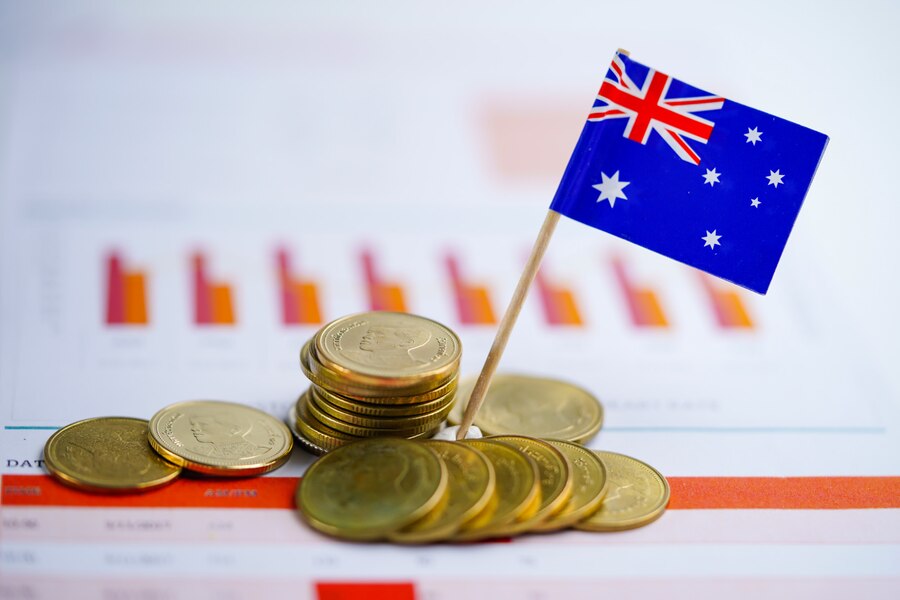Australia’s vibrant higher education sector faces a potential upheaval that could significantly impact Victoria’s economy. Recent discussions around capping the number of new international students have sparked concerns, with experts warning of severe economic repercussions. This article delves into the details of the proposed cap, its implications, and the broader context within which these changes are unfolding. Victoria Economy
The Economic Role of International Students in Victoria
International students play a crucial role in Victoria’s economy. According to a report by the independent advisory firm SPP, the presence of international students at universities in Victoria contributes significantly to the state’s financial health. In fact, universities in Victoria generate an impressive $27.4 billion annually for the state’s economy. This figure encompasses not just the educational institutions themselves, but also the broader economic activity linked to them. Victoria Economy

In particular, the students and staff from Victorian universities spend around $15.4 billion on various goods and services, including food, clothing, and entertainment. This expenditure supports a multitude of small businesses and jobs across the state. With approximately 399,000 students enrolled at Victorian public universities—of which 130,000 are international students—the economic stakes are undeniably high. Victoria Economy
The Proposed Cap: A Threat to Economic Stability?
The Australian government’s proposal to limit the number of new international students could pose a serious threat to Victoria’s economy. The analysis by SPP highlights several key concerns:
Impact on Small Businesses:
Many small businesses in Victoria, still struggling to recover from the effects of the COVID-19 pandemic, rely heavily on the patronage of international students. A reduction in student numbers could lead to decreased revenue for these businesses, potentially forcing some to close their doors.
Job Losses:
The economic contributions of international students extend to employment opportunities. With fewer students, there may be fewer jobs available in sectors that cater to their needs. This could lead to increased unemployment and financial strain for many Victorians.
The Contributions of Victorian Universities
Universities in Victoria are not just educational institutions; they are significant economic players. In 2023, the direct contribution of Victorian public universities to the state’s gross domestic product (GDP) was $6.7 billion. This figure represents about 1.2 percent of the state’s total economic activity. If the proposed caps are implemented, the potential loss of income could add considerable strain to the federal budget. This, in turn, could affect the state budget and its ability to fund essential services and infrastructure.
Michael Wesley, Deputy Vice-Chancellor (Global, Culture, and Engagement) at the University of Melbourne, has voiced concerns about the negative impacts of the proposed cap. He emphasizes that the reduction in international students would not only burden the federal budget but also exacerbate existing issues in sectors like healthcare, which is already under financial pressure.

The Broader Economic Context
International education is a major export for Victoria. During the 2022/23 period, international education accounted for 48 percent of the state’s services exports and 19 percent of its total exports. This sector’s significance to Victoria’s trade balance and overall economic health cannot be overstated.
The Department of Education’s recent data underscores the importance of international students. In 2023, Australia welcomed a record number of international students, with enrolments reaching 975,229—a 31 percent increase from the previous year. This surge represents a recovery and growth trajectory for the sector, with China and India remaining the top source countries.
Government Plans and Their Implications
In May 2024, Australian authorities announced plans to reduce the number of international students as part of a broader strategy to curb immigration levels. Treasurer Jim Chalmers outlined a formula-based approach for limiting student numbers, which includes conditions related to housing availability. According to Chalmers, universities will need to build additional student accommodation if they wish to enroll more international students.
This policy shift has sparked debate about its potential consequences. While the intention is to manage immigration and housing issues, the economic impact of reducing international student numbers could be far-reaching. The education sector’s contribution to the economy, both in terms of direct financial impact and broader economic activity, is significant. The proposed caps could undermine the sector’s recovery and growth, affecting not only universities but also a wide range of businesses and services.
Looking Forward: Balancing Policy and Economic Health
The proposed international student caps represent a critical juncture for Victoria. As the government moves forward with its plans, it will be essential to balance immigration and housing concerns with the economic realities of the education sector. The benefits that international students bring to Victoria—both economically and culturally—are substantial. Therefore, any policy changes need to carefully consider these impacts and strive to support the continued growth and success of the sector.
Conclusion: the debate over international student numbers is more than a matter of policy; it’s a question of economic stability and growth for Victoria. The potential consequences of limiting international student enrollments could ripple through the state’s economy, affecting everything from small businesses to essential services. As discussions continue, it will be crucial for policymakers to weigh these factors carefully and aim for solutions that support both economic vitality and effective immigration management.

Disclaimer:
The views expressed in this article are based on the latest available data and expert analysis as of August 2024. The situation regarding international student caps and their impact on Victoria’s economy is subject to change as new information and policies emerge. Readers are encouraged to consult official sources and stay informed about developments in this area.
Source: erudera.com
Get Free Expert Advice: Are you ready to embark on your next adventure? Whether you’re seeking a work permit, tourist visa, or study opportunities in Canada or other countries, we’re here to help! Contact us today to learn how our expert services can simplify your journey and turn your dreams into reality. Reach out now and let’s start planning your future together!
- Navigating Student Visa Regulations for Studying in the US, UK, Australia, and Canada
- How to Ace the IELTS Exam: Your Complete Guide to Test Structure, Application, and Preparation
- Austria Work Permit Visa 2024: Your Ultimate Guide to Living and Working in Austria
Also read:
- Canada’s New Rural and Francophone Immigration Pilots: A Fresh Opportunity for Skilled Workers
- Hundreds of U.S. Visa Appointments Canceled in Colombia: What It Means for Future Travelers
- Ultimate Guide to Dubai Visa Applications for Indian Tourists: Avoid Rejection & Ensure a Hassle-Free Trip with These Key Tips!
- New Canada Immigration Fees Effective December 1, 2024: Everything You Need to Know
- RS Global Immigration Jalandhar: Your Gateway to International Opportunities










